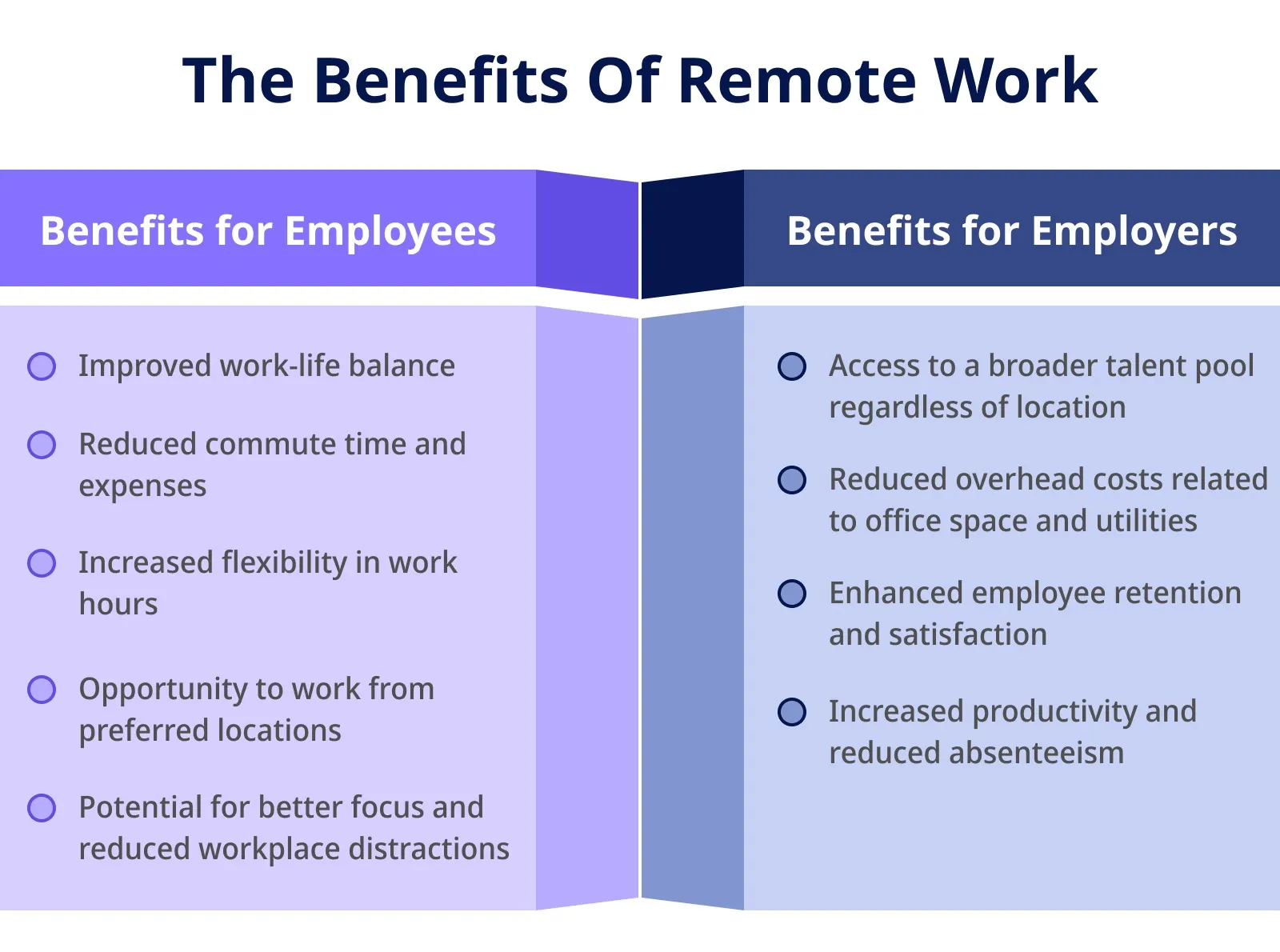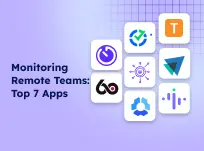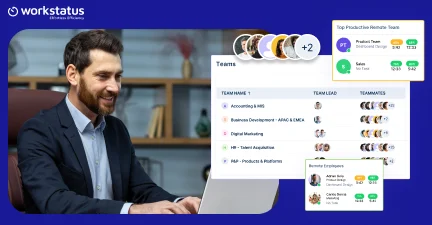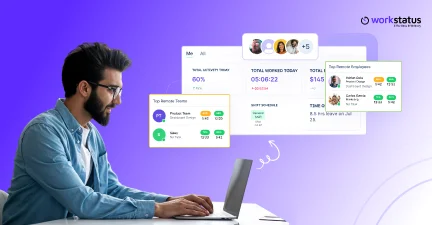Table of Contents
Introduction
Remote work is very common now. Getting more done while working remotely is important.
But how you do it also matters. You need to find good ways to be productive that are fair for employees.
Having a balance between work and personal life is key.
Did You Know?
32.6 million Americans will work remotely by 2025, it’s clear that remote work is here to stay.
By using the right approaches to boost productivity, you can help remote employees succeed professionally while still taking care of themselves.
It’s about finding ways to increase output while being open and showing that you care about your remote team.
Let’s look at some techniques that make remote teams more productive while maintaining ethics and integrity.
The Requirement Of Remote Work In Modern Working Environment
Remote work is very important these days. Many companies now want their employees to work from home or in hybrid mode instead of coming daily to the office. This is called remote work or work from home.
There are reasons why working from home has become so important:
- Better computers and the internet make it easy to work from anywhere
- Employees can balance work and home life better
- Companies save money on office spaces
- Companies can hire people from anywhere
- Many employees want remote jobs
Advantages of remote work include:
- Some get more work done
- No travel time or costs
- More time with family
- Freedom to make your own schedule
There are also challenges, like fewer in-person meetings. But the need for working from home will only grow in the coming years.
It is becoming a regular part of how we work now.
The Need For Ethical Considerations In Remote Working
As more people work from home, we need fair rules to make it work well for everyone.
Some reasons why fair rules are important:
1. Company Privacy
When working remotely, people access private company information. Ethical conduct helps keep this information safe and prevent misuse.
Things like secure internet, encrypted communication, and access limits protect private data.
2. Following Laws
Fair rules ensure companies follow all labor laws.
This prevents legal issues and penalties for not following rules like overtime pay, workplace safety, and anti-discrimination.
3. Trust & Freedom
Ethical practices build trust between employers and workers.
With trust, workers can work independently while still doing a good job.
Clear communication, accountability, and fair treatment create trust in remote teams.
4. Fair Pay
Fair rules make sure all workers get paid fairly.
This prevents unfair differences in pay and opportunities, regardless of where someone works.
Fair pay includes decent wages, benefits, and chances to get promoted.
5. Better Project Management
Ethical project management practices are essential for promoting collaboration, transparency, and effective communication within remote teams, which in turn leads to more successful project outcomes.
Project management ethics involve clear project expectations, equitable workload distribution, and promoting a collaborative work environment that supports all team members.
Also Read : How to Deal With Unproductive Employees ?
Balancing Productivity and Employee Well-being
- Ethical considerations aim to balance driving productivity and prioritizing employee well-being. This helps prevent burnout and stress-related issues among remote workers.
- Achieving this balance involves setting reasonable expectations, providing flexibility, and fostering a supportive work environment that acknowledges the importance of employee mental and physical health.
Now that we have established the need for ethical considerations in remote work let’s explore some strategies for boosting ethical remote productivity:
Strategies For Ethical Remote Productivity
Strategy 1: Time Tracking – Navigating Productivity Ethically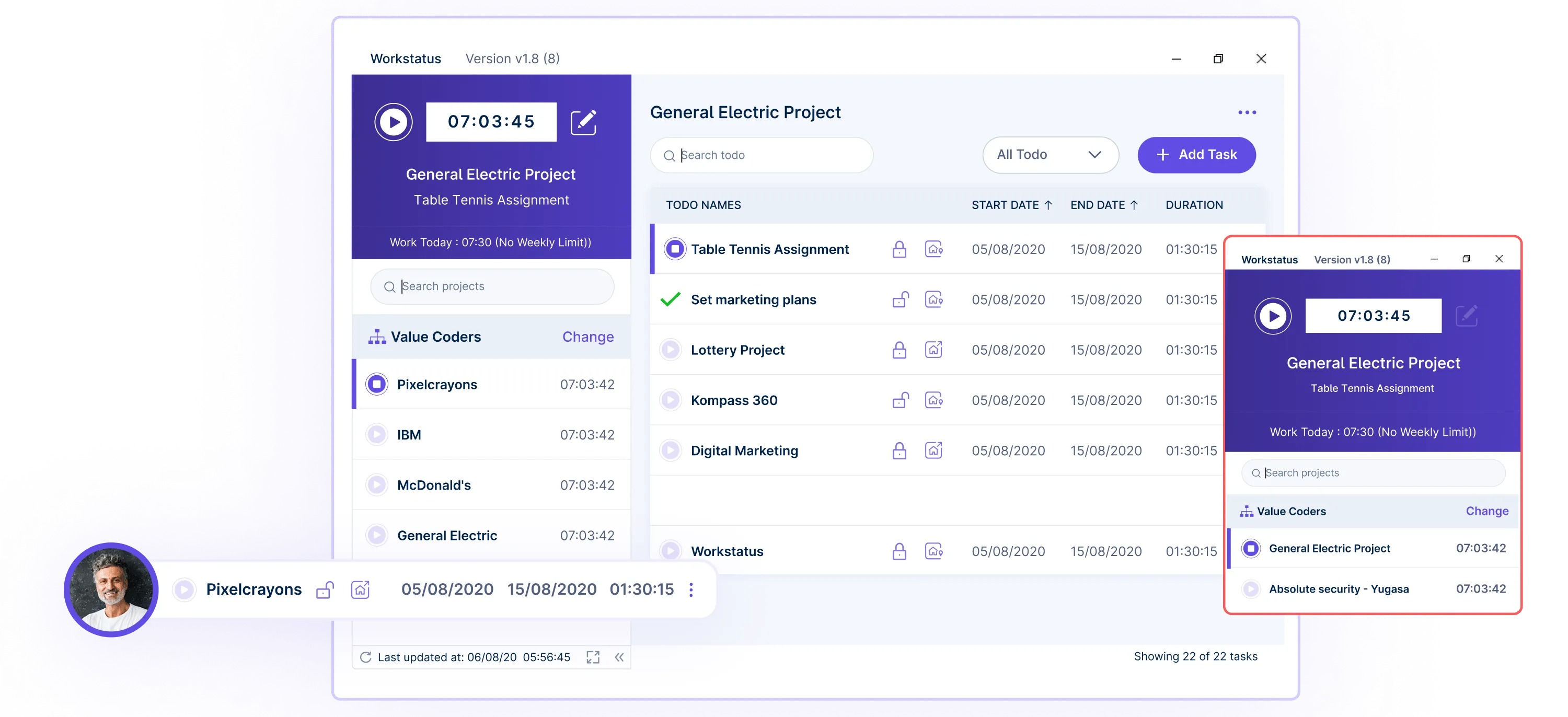
Effective time tracking is a cornerstone in the quest for ethical remote productivity. It’s not about micromanaging but promoting transparency and accountability while respecting the boundaries of remote work. Here’s how you can implement it:
- Implementing Transparent Time-Tracking Systems
Opt for tools like Workstatus that offer transparent time tracking. This means employers and employees have visibility into hours worked, fostering trust and clarity.
- Encouraging Open Communication About Work Hours
Set the stage for ethical time tracking by fostering open dialogue.
Encourage employees to discuss their working hours and any challenges they might face in adhering to them. This communication builds trust and aligns expectations.
- Monitoring Work Hours To Prevent Excessive Overtime
While remote work can sometimes blur the lines between work and personal life, monitoring work hours is essential to prevent burnout.
Ensure that employees are not working excessively long hours, and encourage them to take regular breaks to maintain their well-being.
By embracing this time-tracking, you can promote ethical remote productivity without compromising employee trust or well-being.
Opting for tools like Workstatus can simplify the process, making it easier for employers and employees to adhere to these ethical practices.
Strategy 2: Activity Monitoring: Fostering Trust and Collaboration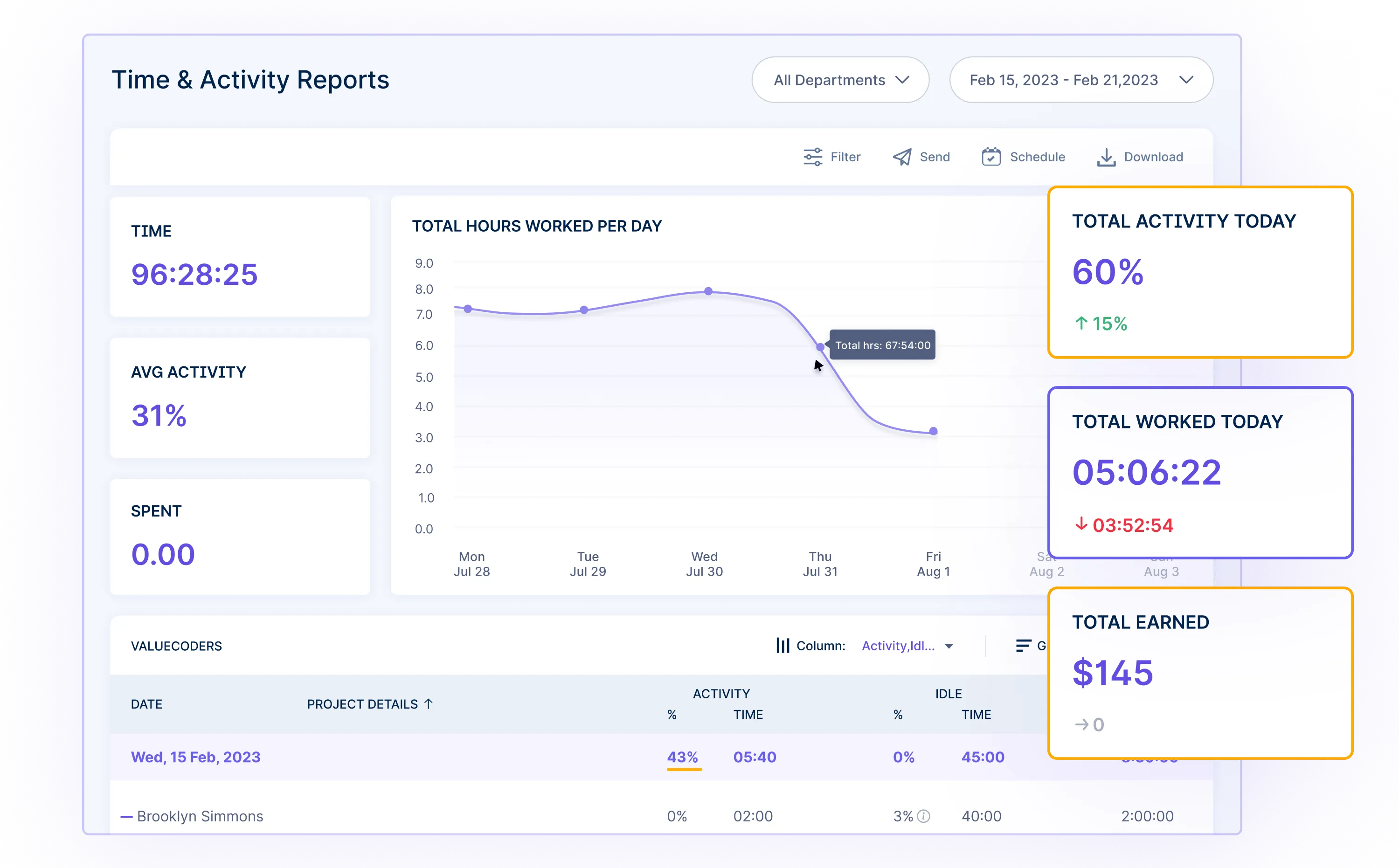
Activity monitoring can be a powerful tool for enhancing remote productivity, but it must be done ethically and with a focus on trust and collaboration. Here’s how you can strike the right balance:
- Establishing Clear Guidelines For Monitoring Activities
Transparency is key. Communicate the parameters of activity monitoring to your team. Ensure they understand why it’s being done and how it will benefit their productivity.![]()
- Respecting Employee Privacy Boundaries
Ethical activity monitoring means respecting privacy boundaries.
Only monitor work-related operations such as app usage, URL tracking, and real-time screenshot capture. Avoid intruding into personal activities or spaces.
- Highlighting The Purpose Of Activity Monitoring
Make it clear that activity monitoring is not about surveillance or mistrust. It’s about optimizing work processes, identifying bottlenecks, and fostering collaboration. Employees who understand the purpose are more likely to embrace it positively.
By adhering to these principles, activity monitoring can be a positive and ethical force for boosting remote productivity.
It’s all about creating an environment where employees feel valued, trusted, and empowered to excel in remote work.
Strategy 3: Project Management: Boosting Remote Performance Collaboration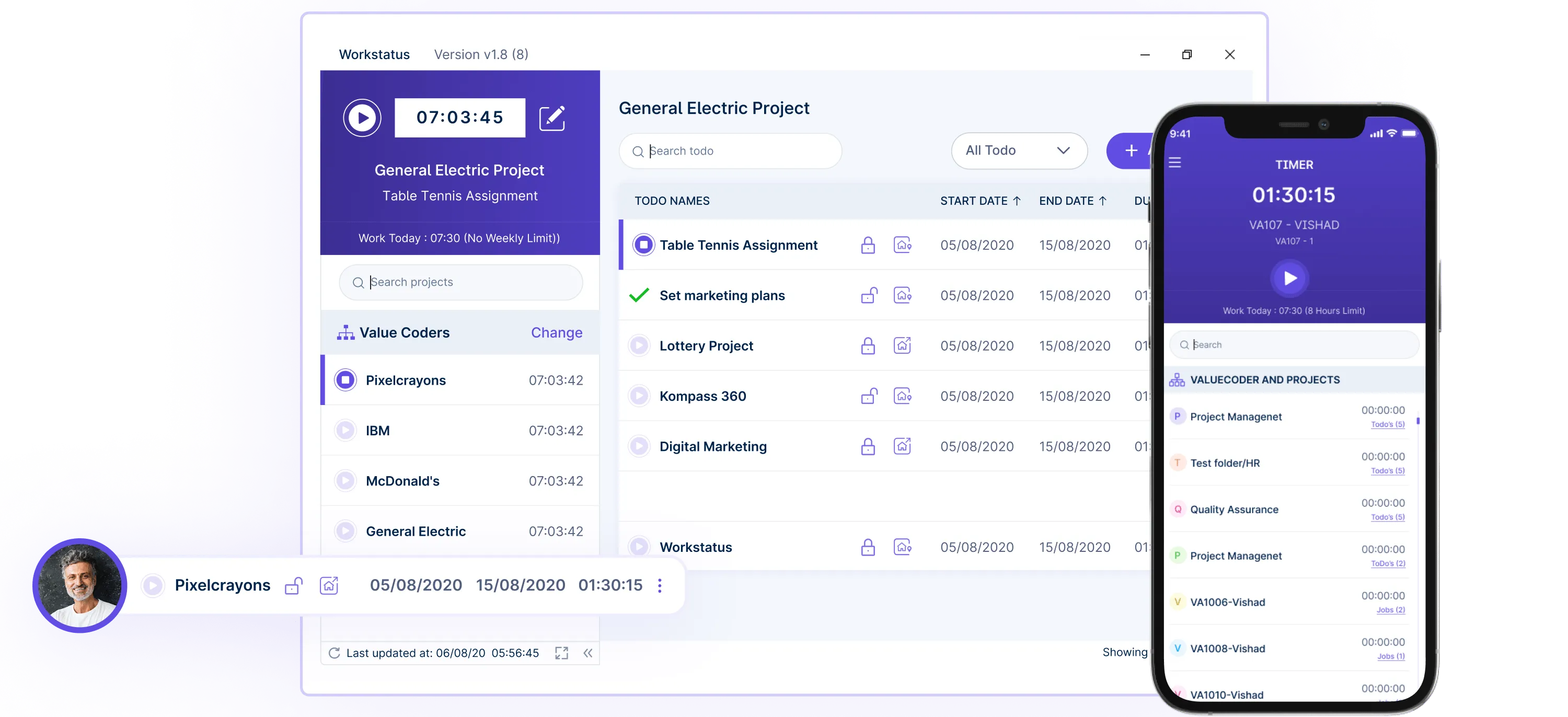 Effective project management is a linchpin for remote productivity. It’s all about harnessing the power of collaboration while keeping the team aligned and motivated.
Effective project management is a linchpin for remote productivity. It’s all about harnessing the power of collaboration while keeping the team aligned and motivated.
Here are strategies, including the use of Workstatus, to make it happen:
- Utilizing Project Management Tools For Better Execution
Invest in collaborative project management tools like Workstatus.
These tools provide a centralized platform where team members can collaborate in real-time, share updates, and manage tasks efficiently. This fosters a sense of cohesion, even when working remotely.
- Involving Team Members in Decision-Making and Project Planning
Boosting remote productivity goes hand-in-hand with involving team members in decision-making and project planning.
Encourage active participation in defining project goals, timelines, and strategies. Employees feel more invested in the outcome when they have a say in how things are done.
- Implementing Centralized Project Dashboards
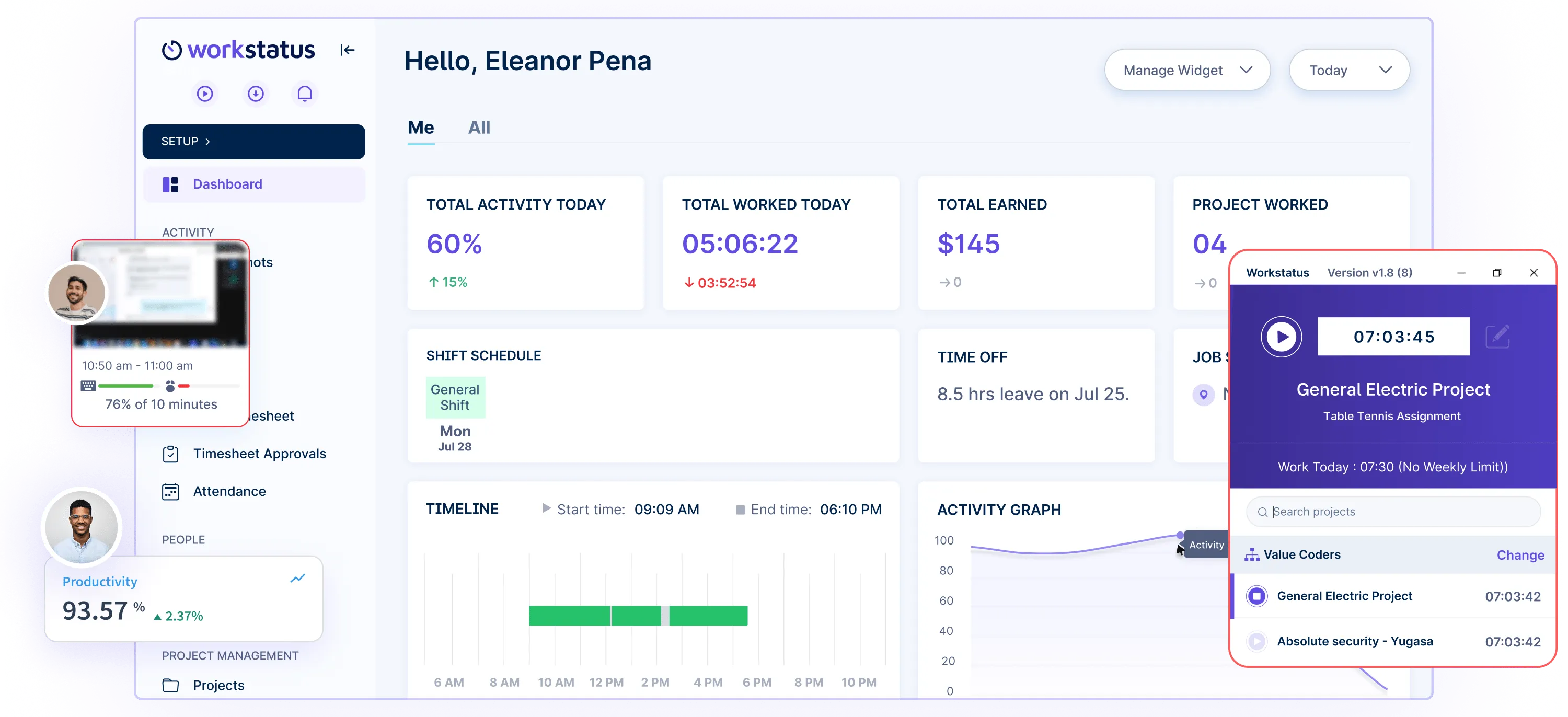 Workstatus offers centralized project dashboards that provide real-time updates on project progress.
Workstatus offers centralized project dashboards that provide real-time updates on project progress.
This transparency ensures everyone is on the same page, reducing misunderstandings and delays. It also allows for quick adjustments when necessary, keeping projects on track.
Incorporating these strategies into your project management approach, with the help of tools like Workstatus, not only boosts remote productivity but also enhances team collaboration and morale.
Strategy 4: Payroll and Invoicing: Fair Compensation For Timely Payments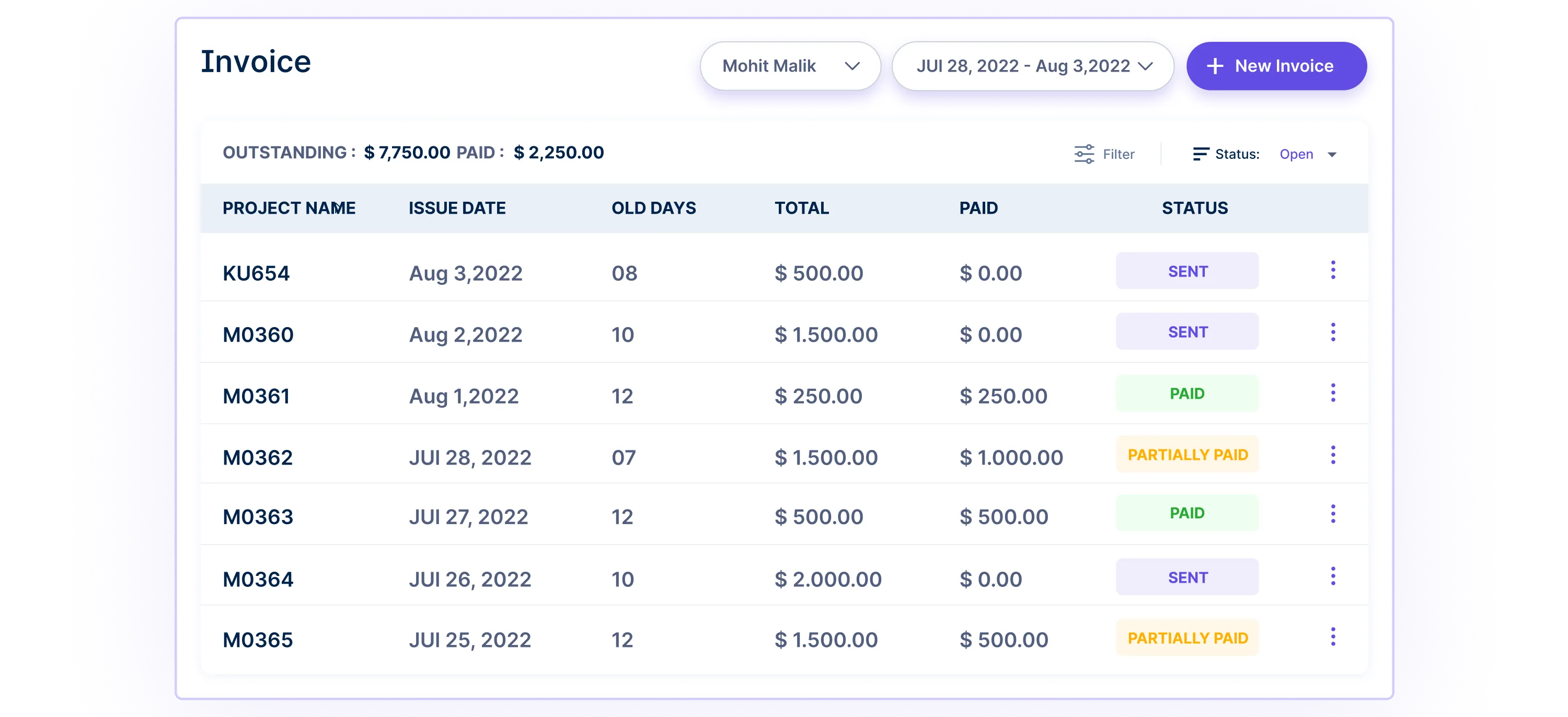 Ensuring your remote workforce is compensated fairly and transparently is an ethical responsibility and a key factor in boosting remote productivity. Here’s how you can do it effectively with tools like Workstatus:
Ensuring your remote workforce is compensated fairly and transparently is an ethical responsibility and a key factor in boosting remote productivity. Here’s how you can do it effectively with tools like Workstatus:
- Implementing Robust Payroll Systems
To guarantee fair compensation, it’s crucial to implement robust payroll systems that rely on accurate time tracking.
Workstatus offers a seamless integration that tracks time worked to the minute, reducing the risk of underpayment or overpayment.
- Providing Transparent Breakdowns of Pay and Benefits
Transparency is key in payroll and compensation. Use tools like Workstatus to provide employees with transparent breakdowns of their pay and benefits. This reduces confusion and fosters trust.
- Regularly Auditing Payroll Processes For Accuracy and Fairness
Periodically audit your payroll processes to ensure accuracy and fairness.
Workstatus offers robust reporting features that make reviewing and refining your payroll procedures easy, addressing any issues promptly.
By implementing these strategies & leveraging tools like Workstatus, you ensure fair compensation for remote workers and create an environment where employees are motivated to deliver their best, ultimately boosting remote productivity.
Workstatus: Your One-Stop Solution
Workstatus emerges as your comprehensive and all-encompassing solution to ensure ethical remote productivity.
Workstatus offers many features to enhance efficiency, maintain trust, foster transparency, and uphold ethical work practices.
1. Time Tracking
Workstatus provides robust time tracking capabilities, allowing you to monitor and optimize your remote workforce’s time allocation.
This feature ensures that employees remain accountable for their work hours, promoting efficiency while preventing time misuse.
2. Activity Monitoring
With Workstatus, you can track and analyze the activities of your remote team members.
This feature helps identify areas of improvement and ensures that employees remain engaged and productive, all while respecting privacy and ethical boundaries.
3. Collaborative Project Management
Workstatus facilitates seamless collaboration within your remote teams.
It offers project management tools that enable effective communication, task assignment, progress tracking, and project completion—all essential for achieving project success.
4. Payroll Management
Ethical work practices involve fair compensation for remote employees.
Workstatus simplifies payroll management, ensuring that your team members are compensated accurately and on time, which is essential for maintaining their trust and commitment.
5. GPS Tracking
When location monitoring is necessary for your remote workforce, Workstatus includes GPS tracking features.
This is particularly useful for businesses that require fieldwork or remote sales teams, ensuring ethical and transparent tracking of employee locations.
Conclusion
Remote work is becoming more common. As this happens, it’s important to have ethical practices to help people be productive while working remotely.
Companies should make fair and ethical decisions about tracking hours worked, managing projects, and paying employees.
With tools like Workstatus, companies can allow work from home while still having an environment of trust, teamwork, and fairness for their remote teams.


